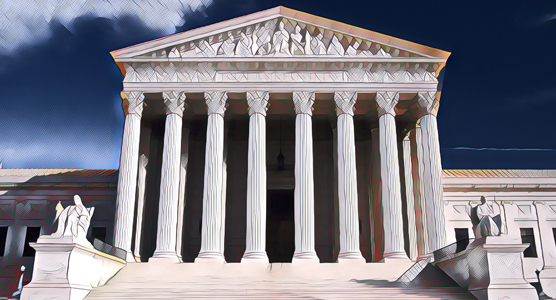BJC urges Supreme Court to affirm that RFRA permits monetary damage awards

If your lawsuit under the Religious Freedom Restoration Act (RFRA) is successful, what do you win? Most often, you will get an order requiring the government to change the policy that substantially burdened your religious exercise. But, can you receive a monetary judgment? That is the question the U.S. Supreme Court will consider in Tanzin v. Tanvir, which is scheduled for oral argument on March 24. [UPDATE: The oral arguments have been postponed due to the coronavirus pandemic; they will now be Oct. 6.]
RFRA prohibits the government from substantially burdening a person’s religious exercise unless that burden is the least restrictive means of pursuing a compelling government interest. RFRA permits a person whose religious liberty rights have been violated to obtain “appropriate relief against government.” Tanzin invites the Supreme Court to determine whether or not “appropriate relief” can include monetary damages. The 2nd U.S. Circuit Court of Appeals held that it does. “RFRA permits a plaintiff to recover money damages against federal officers sued in their individual capacities.”
In a new friend-of-the-court brief, BJC attorneys agree with the 2nd Circuit’s conclusion and urge the Supreme Court to affirm that ruling. RFRA was always intended, the brief argues, to allow for monetary damages under the same principles that are followed elsewhere in federal law protecting important civil rights. There, plaintiffs alleging violations by government officials are entitled to monetary damages, “but only if defendants violated ‘clearly established statutory or constitutional rights of which a reasonable person would have known.’” Congress intended for victims of religious liberty violations to have the same remedy available under RFRA, according to the brief.
The brief – joined by BJC, 14 religious liberty scholars and the Christian Legal Society – details the legislative history of the law as it relates to the question of relief. It emphasizes two points that seem worth an extra highlight.
First, in very few RFRA cases, are monetary damages the appropriate remedy. “[I]n the statute’s 26- plus years of operation, only two courts of appeals and six district courts have decided whether damages are authorized against federal employees.”
Second, damages remain an essential point of relief in certain cases where there would be no other possible remedy, because it would be too late.
Here is an excerpt:
Damages become indispensable if prospective relief is impossible, as when the harm is imposed suddenly and the believer cannot anticipate it in time to get an injunction, or when harm already suffered is unlikely to recur.
…
Damages are the only possible relief for many student claims. Students subject to school discipline may be forced to submit before they can consult parents, let alone an attorney. Or a student may graduate or transfer during the litigation, meaning that he can no longer claim prospective relief.
You can read the entire brief here. For more background on RFRA, see BJC’s RFRA resource page.




